Resources
As educators and consultants who are committed to helping make the world a more productive and harmonious place, we have documented some of our best insights and practices to share publicly. We welcome you to use these exceptional tools in your own workplace… and we’d love your feedback on how they worked for you! Note that this is copyrighted content. We ask that you not post these on any public platform, distribute digitally beyond your immediate work circle, or represent these as your original creation. And don’t forget to check back for new content! We update this page regularly with new insights!
Leadership Skills
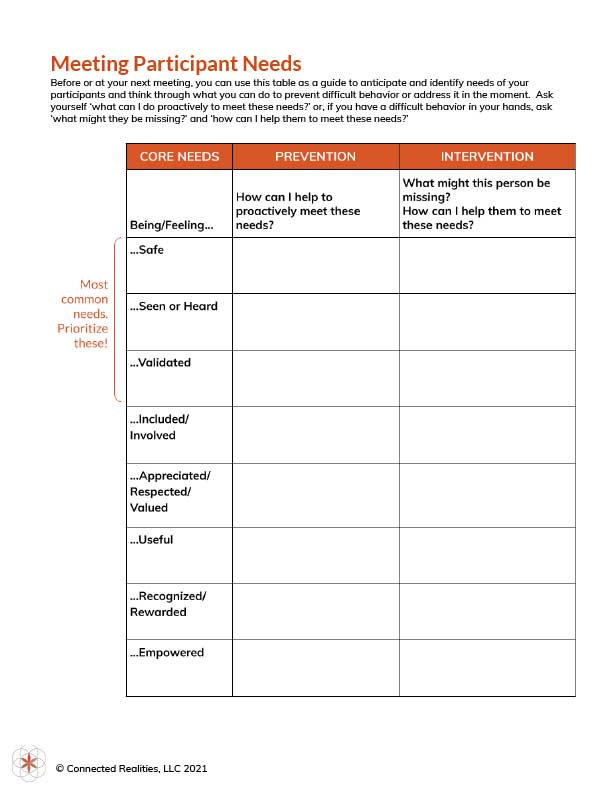
Meeting Participants Needs
Before or at your next meeting, you can use this table as a guide to anticipate and identify needs of your participants and think through what you can do to prevent difficult behavior or address it in the moment. Ask yourself ‘what can I do proactively to meet these needs?’ or, if you have a difficult behavior in your hands, ask ‘what might they be missing?’ and ‘how can I help them to meet these needs?’
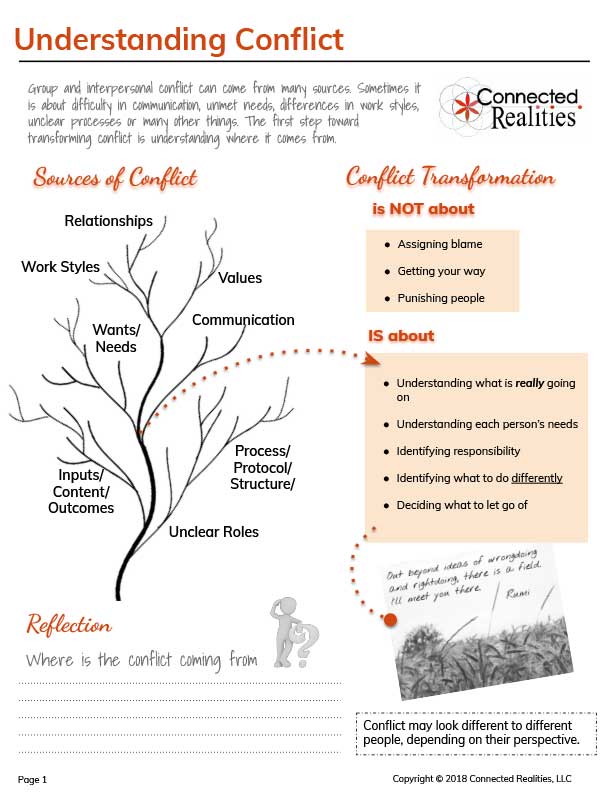
Understanding Conflict
Being able to deconstruct conflict in order to understand it better is a first step in being able to transform conflict. Understanding the sources of conflict and asking yourself critical questions can help you as you prepare to work through interpersonal and group conflict effectively. Download the resource below to help you think through interpersonal conflict and begin to chart a path toward better interpersonal and team effectiveness.
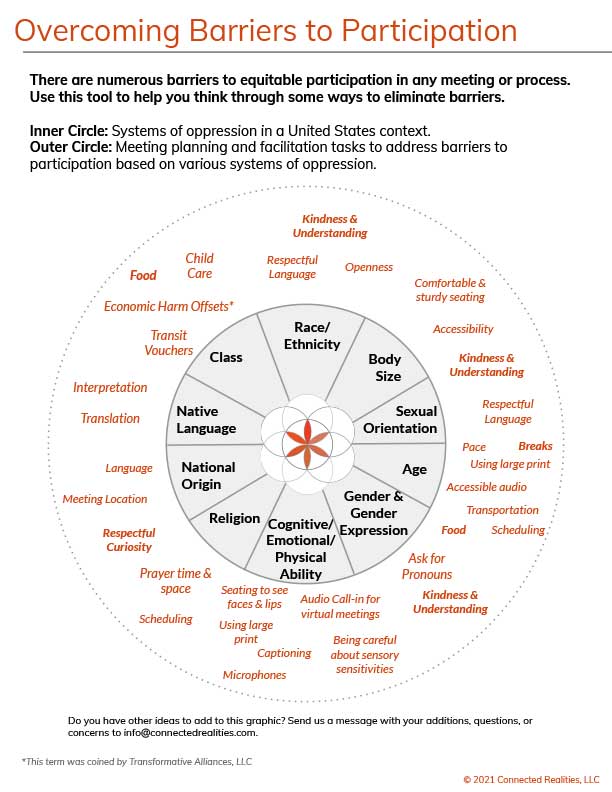
Overcoming Barriers to Participation
This handout features a series of ideas to help you think about what you can do in meeting planning and facilitation to overcome barriers to equitable participation.
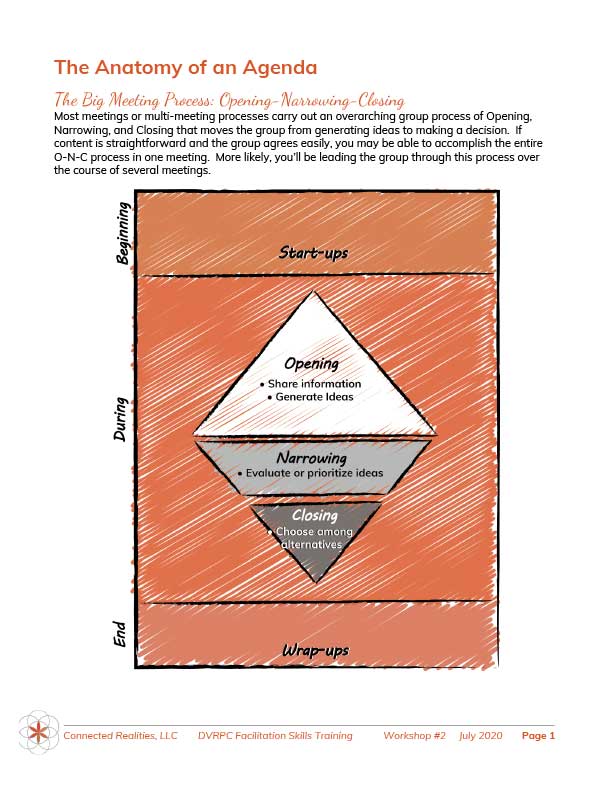
The Anatomy of an Agenda
The Anatomy of an Agenda handout and video were prepared as part of a Facilitation Skills Training module for the Delaware Valley Regional Planning Commission. Creating strong agendas starts with a solid understanding of meeting and agenda “anatomy”. Check out these resources to better understand the distinct parts of a strong agenda.
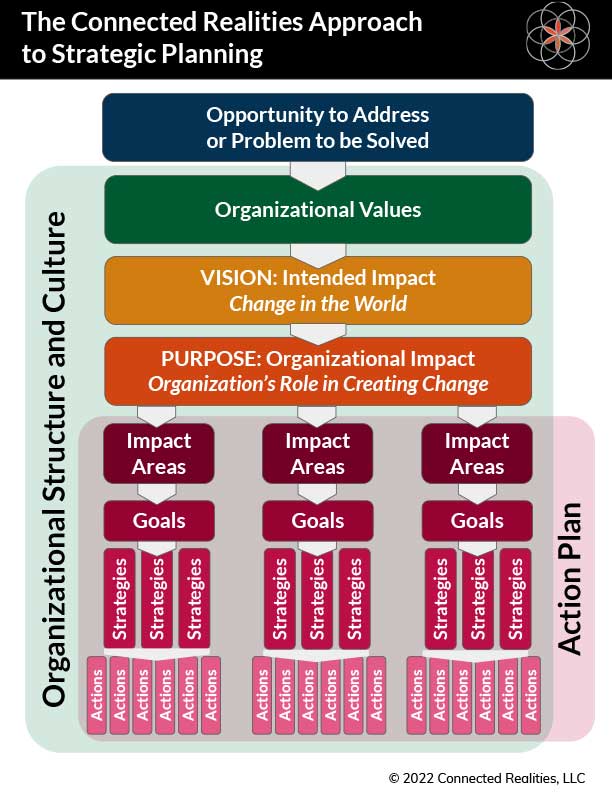
Connected Realities’ Approach to Strategic Planning
Connected Realities takes a holistic approach to Strategic Planning. We know that a plan is just one component of groups doing their shared work effectively. Our model of group effectiveness identifies several critical components including: context, values, vision, purpose, organizational structure and culture, and action planning.
Team Skill Building
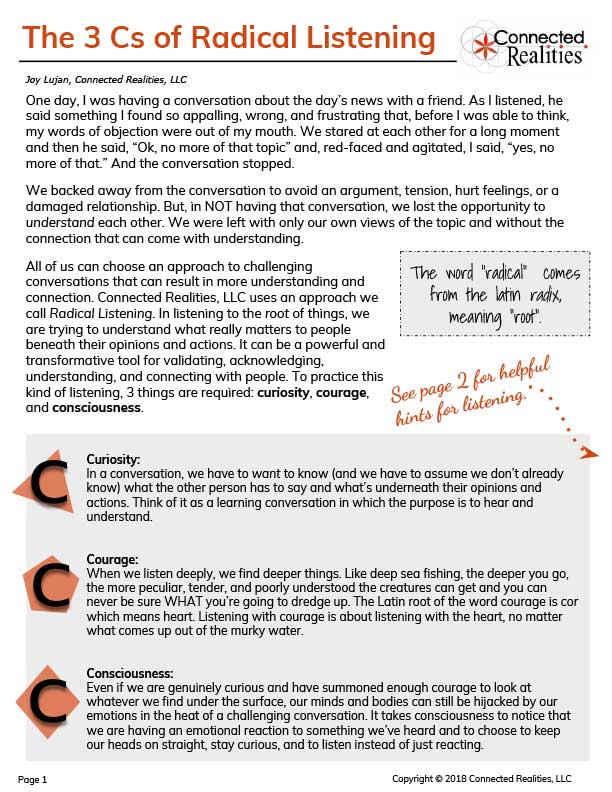
3 Cs of Radical Listening
Depending on how we approach them, is possible for challenging conversations to result in more understanding and connection between people. Connected Realities, LLC uses an approach we call Radical Listening. In listening to the root of things, we are able to understand what really matters to people – beyond their opinions and actions. It can be a powerful and transformative tool for validating, acknowledging, understanding, and connecting with people. To practice this kind of listening, 3 things are required: curiosity, courage, and consciousness.
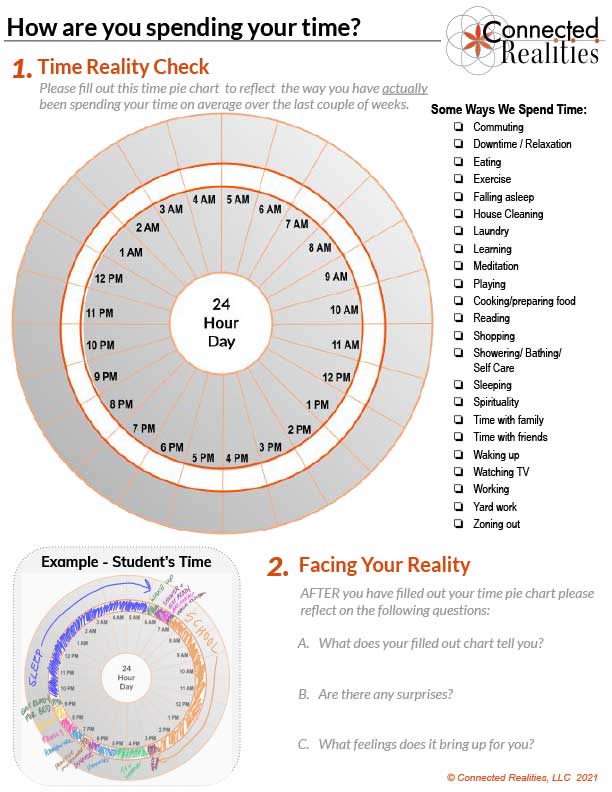
Time Reality Check-In
The Time Reality Check-In is an 8 step process of identifying how you’re spending your time, determining your core values, understanding what is getting in the way of you using your time in service of your values, and then re-aligning your values and your time.
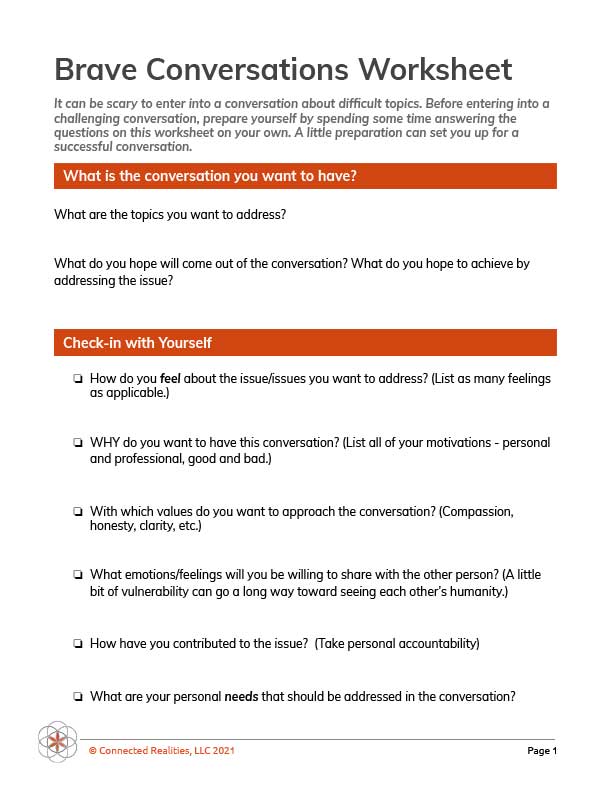
Brave, Safe Conversations
It can be scary to enter into a conversation about difficult topics. Before entering into a challenging conversation, prepare yourself by spending some time answering the questions on this worksheet on your own. A little preparation can set you up for a successful conversation.
Community Engagement
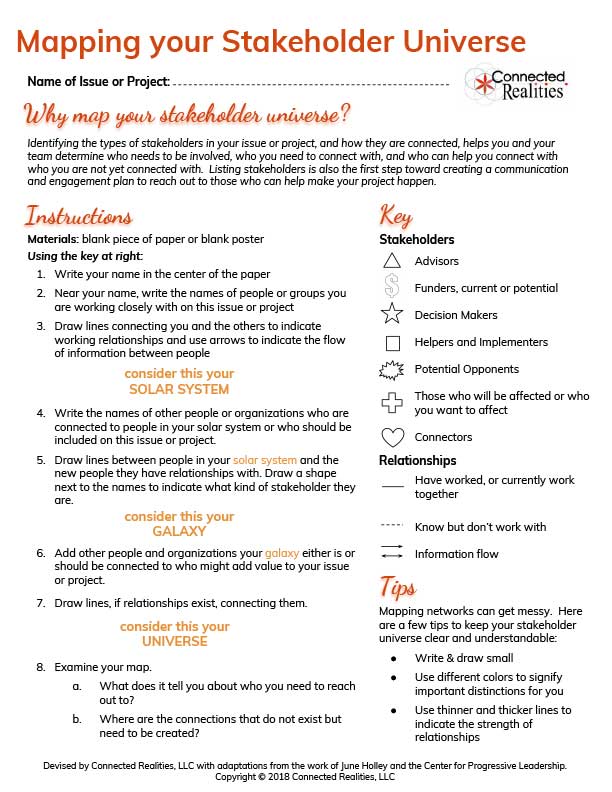
Mapping Your Stakeholder Universe
Identifying the types of stakeholders in your issue or project, and how they are connected, helps you and your team determine who needs to be involved, who you need to connect with, and who can help you connect with who you are not yet connected with. Listing stakeholders is also the first step toward creating a communication and engagement plan to reach out to those who can help make your project happen. Download the resource below to begin to identify your stakeholders.